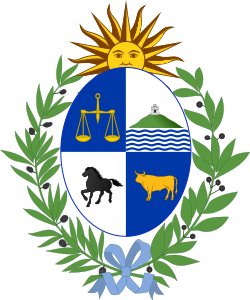 |
|---|
General elections were held in Uruguay on 25 November 1928, [1] electing all members of the Chamber of Representatives, three members of the National Council of Administration and seven of the nineteen members of the Senate.
Contents
The various factions of the Colorado Party received the most votes in the Chamber of Representatives elections, but the National Party won the most seats. The Colorado Party won two of the three seats in the National Council of Administration, while the National Party won five of the seven Senate seats.